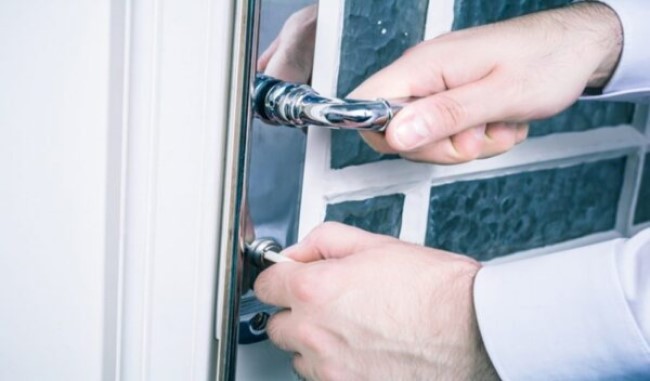Tips to Make Your Door Locks Last Longer

Door locks are crucial to your home’s security, protecting your family and belongings. Ensuring that they remain functional and secure over time is essential. Proper maintenance and care can significantly extend the lifespan of your door locks, saving you from frequent replacements and potential security breaches.
Helpful Tips to Make Your Door Locks Last Longer
Here are some valuable tips to help make your door locks last longer.
Regular Cleaning
Dust, dirt, and grime can accumulate in and around door locks, eventually leading to jamming and malfunctioning.
Clean the Exterior: Wipe down the lock’s exterior with a soft cloth and mild soapy water. Avoid using abrasive cleaners that could damage the finish.
Clean the Interior: Use a can of compressed air to blow out dust and debris from the keyhole and internal mechanisms. This prevents buildup that could cause the lock to stick.
Lubrication
Proper lubrication ensures the smooth operation of your door locks, reducing wear and tear on the internal components.
Use the Right Lubricant: Apply a graphite or silicone-based lubricant specifically designed for locks. Avoid using oil-based lubricants like WD-40, which can attract dirt and grime.
Apply Sparingly: Insert a small amount of lubricant into the keyhole and work the Key in and out to distribute it evenly. This helps maintain smooth operation without over-lubricating.
Inspect for Wear and Tear
Regularly inspect your door locks for signs of wear and tear to address potential issues before they become major problems. If the lock has experienced any wear and tear, get it replaced by hiring a professional locksmith in Sawbridgeworth.
Check for Rust and Corrosion: Look for any signs of rust or corrosion, especially on exterior locks exposed to the elements. Treat rust spots with a rust remover or replace the lock if necessary.
Examine the Key: Inspect the Key for bends, cracks, or excessive wear. A damaged key can damage the lock internally.
Ensure Proper Alignment
A misaligned door can put undue stress on the lock, causing it to wear out faster.
Check the Strike Plate: Ensure the strike plate is properly aligned with the latch. Adjust the strike plate if necessary to ensure smooth locking and unlocking.
Adjust Door Hinges: If the Door sags or doesn’t close properly, adjust the hinges to realign the Door. This reduces strain on the lock mechanism.
Avoid Excessive Force
Excessive force to turn the Key or operate the lock can damage the internal components.
Turn the Key Gently: Always turn the Key gently and avoid using it as a handle to pull the Door closed or open.
Handle the Door Properly: Close and open the Door without slamming or using excessive force. This reduces stress on the lock and its components.
Replace Worn Out Parts
If you notice any lock components showing signs of wear, replace them promptly to avoid further damage.
Replace Keys: If the Key is worn out, get a new one made from the original or replace the entire lock if necessary.
Change Worn Cylinders: If the lock cylinder is worn or damaged, consider replacing it to ensure smooth operation and security.
Protect Against the Elements
Exterior locks are particularly susceptible to weather-related damage.
Use Weatherproof Locks: Choose weatherproof locks for exterior doors to prevent rust and corrosion.
Install a Protective Cover: Use a protective cover or escutcheon plate to shield the lock from rain, snow, and extreme temperatures.
Professional Maintenance
Occasionally, having a professional locksmith inspect and maintain your locks is beneficial.
Regular Check-Ups: Schedule regular maintenance checks with a professional locksmith in Cheshunt to ensure your locks are in good working condition.
Professional Lubrication and Cleaning: A locksmith can thoroughly lubricate and clean, ensuring optimal performance and longevity.
Conclusion
By following these tips, you can significantly extend the lifespan of your door locks, ensuring they remain functional and secure for years to come. Regular cleaning, proper lubrication, and addressing wear and tear promptly are key to maintaining your locks.
Additionally, ensuring proper alignment, avoiding excessive force, and protecting locks from the elements will help preserve their integrity. Taking these proactive steps not only enhances the longevity of your locks but also contributes to the overall security of your home.


